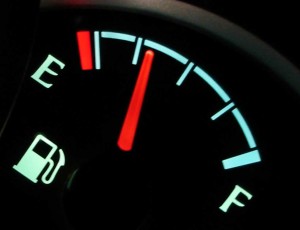Drivers Are Important
Whenever we think of a possibility to save on fuel, we must be aware of all the factors that could influence increase in consumption. These factors may vary and could easily affect our vehicle’s economic performance. Some of these are well known, some are a bit forgotten, and some of them we don’t even take into account.

Vehicles are driven by real people and they are the ones that have by far the highest and most direct influence on fuel consumption. Driving in higher speed than necessary, combining it with sharp direction changes, as well as sudden acceleration and braking, dramatically increases your vehicle’s fuel consumption. The most common reason for this driving style is the need to spend less time on the road, or recuperate the time lost doing other daily activities (attending meetings, delivering goods etc.). Certainly that we never take into consideration probable losses of time and money if we are stopped by the police, the risks and probable causes of traffic accidents, and one thing that will also occur –need for more frequent “pit stop” to a fuel pump and excessive money thus spent.
The lack of interest of drivers in vehicle state is also an important issue. Everyone must be aware that the state of the vehicle could substantially increase the fuel consumption, and therefore every failure, damage or malfunction should be treated by a professional service as soon as possible, in order to keep everything in control.
Main request for a driver like that is to be aware what things he could lose if he were using the vehicle in an inappropriate manner, and here are some of the most important factors.

- Any speed increase while driving faster than 80 km/h for just 1% also increases current fuel consumption for 1%
- Winter type compared to summer type tires could increase fuel consumption up to 7% if used while the weather conditions are inadequate
- Insufficient tire pressure could increase fuel consumption up to 1% for every 0,1% lower pressure value under recommended
- Engine idling while vehicle full stop could increase fuel consumption relative to distance covered up to 10%, so drivers must be cautious when it comes to leaving engine running
- Any vehicle aerodynamics alteration could increase fuel consumption, therefore drivers should avoid opening windows, leaving tents untied or achieving high speed while carrying roof load
- Efficient driver could decrease fuel consumption for even 30% by proper usage of transmission gears, maintaining engine performance at appropriate rpm
- The use of inertia is a very good way to avoid spending excessive energy while in motion, also easily manageable according to road conditions, destination distance and timely acceleration or deceleration of the vehicle
- Route planning is the most interesting part, since aside from distance reduction with proper route selection, we could think of more economic trip on roads without hill climbing, or even change order of planned visits
- Use of cabin air conditioning or load compartment refrigeration units will increase fuel consumption for at least 5%
- Brand new vehicle has a higher fuel consumption, so after 15.000 km engine reaches the expected fuel consumption, which could mean reduction of about 2-5%
A responsible driver should be aware of all these factors so he could take advantage of them and the most important of all is to impact vehicle’s fuel consumption by using methods listed here.


